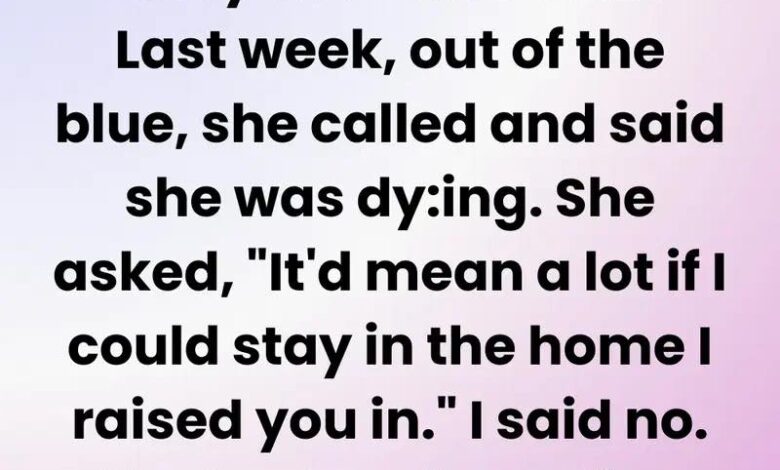My Terminally Ill Mother Wanted to Move In, but I Said No — She Left Me First

No, it doesn’t mean you’re heartless. Your feelings stem from a deep wound—your mother’s abandonment when you were 11, leaving your father to raise you alone. Her absence shaped your life, and the grief you’ve carried for years is real, even if she was still alive. Now, at 29, owning the house your father left you, her sudden reappearance and request to “fix things” by moving in feels like an attempt to rewrite a painful history you’ve lived with longer than you had her presence.
Her illness and collapse on your steps are tragic, and the guilt you feel shows you’re not devoid of compassion—it’s human to waver. But setting boundaries doesn’t make you cruel. You told her honestly, “You didn’t raise me. You left.” That’s not harsh; it’s the truth of your experience. Declining to be her emergency contact reflects the reality that she hasn’t earned that role in your life.
Your story echoes moments of quiet strength, like the small acts of kindness you’ve shown others—cleaning a flat, helping a stranger, or listening to someone’s story. Those acts don’t vanish because you’re protecting yourself now. You’re not heartless; you’re human, guarding the home and life you’ve built from someone who walked away. It’s okay to prioritize your peace.



